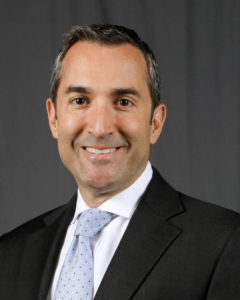No products in the cart.
DFW’s John Ackerman on strengthening inter-airport connections
 At this year’s TIACA Air Cargo Forum, Dallas-Fort Worth International Airport (DFW) signed a memorandum of understanding with Groupe ADP, the operator of Paris Charles de Gaulle Airport (CDG) and others, to “develop air cargo strategies” and improve the movement of airfreight between the two global hubs. Under the agreement, DFW and CDG pledged to work together to expand growth opportunities in several key industries, such as pharmaceutical transport, non-pharma perishables and various high-value luxury goods.
At this year’s TIACA Air Cargo Forum, Dallas-Fort Worth International Airport (DFW) signed a memorandum of understanding with Groupe ADP, the operator of Paris Charles de Gaulle Airport (CDG) and others, to “develop air cargo strategies” and improve the movement of airfreight between the two global hubs. Under the agreement, DFW and CDG pledged to work together to expand growth opportunities in several key industries, such as pharmaceutical transport, non-pharma perishables and various high-value luxury goods.
During the conference, John Ackerman, DFW’s executive vice president of global strategy and development, told Air Cargo World about the deeper meaning of the Texas hub’s MOU with ADP and how it may be the linchpin in securing long-sought-after freighter traffic from South America. He also discussed DFW’s recent efforts at securing CEIV certification for pharmaceuticals handling, expansion plans for its cargo community and the potentially long-term effects of the new United States-Mexico-Canada Agreement (USMCA) that will replace the 20-year-old North American Free Trade Agreement (NAFTA).
Q: How did the MOU between DFW and ADP come about?
John Ackerman: That’s something that came together very quickly. Our CEO, Sean Donohue, and the mayors in Dallas and Fort Worth, were in Paris this summer on a trade mission, and they met with Marc Houalla, executive director of CDG Airport. Marc and Sean both said their airports shared similar ambitions and had similar characteristics, so they got together and quickly hammered out an MOU. Marc said ADP decided that it was going to sign strategic agreements with only select airports – the first, Hong Kong, the second DFW. We believe that we have a lot to learn from Marc and his team at Group ADP and CDG, and we also hope that we can help them out with our experience as well.
Q: What does DFW hope to achieve with the MOU?
JA: There’s a large aerospace cluster here at DFW, with Lockheed and Bell, and then there’s the French aerospace industry, obviously, with Airbus, so we think there will be a lot of trade in that sector. Also, we still don’t have a freighter coming north out of South America. It’s become our “white whale” we’ve been chasing for a while. Still, we’re always optimistic, since there’s a tremendous amount of freight coming out of South America. The challenge is just the back haul. What we’ve been talking about with this MOU is a loop that would be coming westbound out of Europe or Middle East and down into South America, then up through Dallas and then back to Paris and beyond. That might work.
Q: How do you expect the changes to the USCMA will affect cargo traffic?
JA: With our proximity to the Mexican border and the maquilladora region [where foreign-owned companies set up factories in Mexico to exploit low-cost labor], we’ve been enjoying tremendous cross-border truck and air commerce going back and forth under NAFTA. So, at first, we were worried that the Trump Administration was blowing up the NAFTA deal to create a brand-new deal. But everything that I’ve been reading so far about USMCA is that some changes were made, but nothing substantial.
Q: When do you expect to wrap up you CEIV certification?
JA: After we opened the new cool-chain facility last year at DFW, we began building a cargo community, and have since been working on becoming CEIV-certified. All the companies in the supply chain have gone through the training, so now we’re in that process where IATA has to come out to do the temperature mapping and certify them. I’m told that should happen in the first quarter of 2019, when we expect to announce that we’re only the second CEIV cargo community in the country, after Miami.
Q: Did you have trouble getting stakeholders to commit to CEIV?
JA: The adoption has been tough, and it’s been a little bit slower than people expected. Some of our partners said, rightfully so, that they were not sure about making an investment in the certification. So we said, “fair point,” and invested our own money to subsidize some of the costs. We didn’t pay for all of it because we wanted to make sure that they’ve got skin in the game, too, but we showed them we were willing to invest alongside them and that we’re serious.
Q: Has DFW been affected by American tariff policies with China?
JA: We haven’t seen direct evidence in the numbers yet, but this [protectionist] rhetoric between Washington and Beijing does concern us. The way I see it is businesses hate uncertainty. If you’re an airport, anything that has the potential to disrupt the flow of freight is a bad thing. The law of unintended consequences tends to catch up with you eventually. We didn’t see numbers dip because of the USMCA issue or the tariff issue, but I think a lot of businesses have been withholding investment until they figure out what’s really going to happen. So, I think some of the impacts may lag and won’t show up for six months to a year. It will be interesting to see that halt in investment as it goes through the system.

















